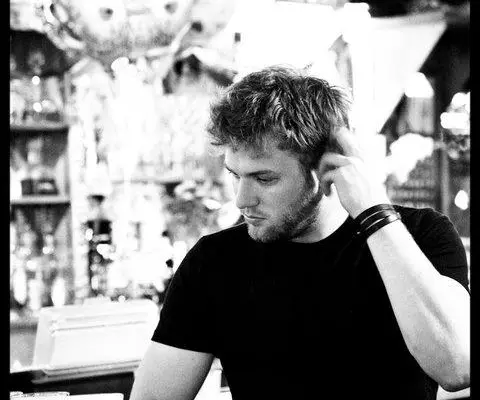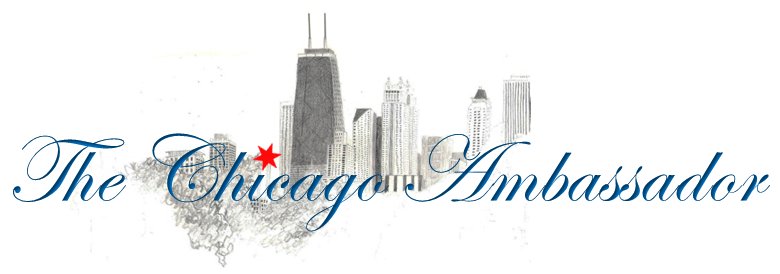Award Winning Chicago-made short film on its way to Cannes

Erik Scanlon
For the second year in a row, the winner of Chicago’s 48 Hour Film Project is going to Cannes.
The project, Knockout, is a story about a young woman named Angel Tacaro (Melody Angel) who is an aspiring female boxer in the 1970s who is challenged with fighting off the sexism that came with the patriarchal agenda of that era. Tacaro showcases her powerful moves in a sparring match with her uncle who portrays the idea that women shouldn’t be allowed to do everything a man can, like box. Created in only 48 hours, the film won awards for Best Film, Best Editing, Best Writing, the Audience Award, at the Chicago 48 Hour Film Project and Knockout earned an Honorable Mention in Best Cinematography and honors in Best Editing, Best Directing, and Best Lead Actress at the 2019 Filmapalooza competition in Orlando.
Recently, The Chicago Ambassador’s M. Campbell spoke to Erik Scanlon, director, co-writer, co-producer and co-editor of the film about the impact and powerful message behind the 7-minute film and what he anticipates as he gets ready to bring it to the prestigious Cannes Short Film Corner in France.
CA) Where did you go to school? What’s your background with working with film?
SCANLON) I attended the Art Center College of Design in Pasadena, California and I graduated with a Bachelor of Fine Arts in Film with an emphasis in Directing. After graduating from college, I did a lot of freelancing and contract work for corporations and theatre companies specifically, doing anything from trailers to projection design, which has allowed me to travel the world. The reason I moved to Chicago [three and a half years ago] was to become the video producer at the Goodman Theatre, so I have a lot of great connections to the Chicago theatre scene. The Goodman is actually where I gathered my entire team for the production of this film, including cinematographer Cody Nieset.
CA) You won awards originally from the Chicago 48 Hour Film Project. Do you actually have 48 hours to complete the film? How does the 48-hour filming process take place?
SCANLON) You have exactly 48 hours to produce a film, from Friday at 7 pm to Sunday at 7 pm. There are about 25 genres placed in a hat and on that Friday evening, everyone randomly selects their genre for the film. From there, everyone is then given certain guidelines that the film must follow, like a prop that must be used, a character name and occupation, or a line of dialogue, to make sure you’re actually creating this piece within the 48-hour timeframe.
CA) What do the winners of the project receive?
SCANLON) The last two years, the winners have been given a $1,000 cash prize, generously given from sponsors of the Chicago 48 hours Film Project, on top of bragging rights.
CA) Did you have any stories, ideas, crew or actors/actress ready to use before this contest?
SCANLON) Before the contest, I reached out to about 15 local actors I knew offhand that would be interested and available for our shooting on that Saturday, and by chance, the 4 people that are in the film are the four people that agreed to do it. I was thrilled local jazz guitarist Melody Angel could star in the film even though she had never acted before. During the writing process, the plot line was inspired because of her identity and who she was, which really deepened the meaning of this movie, not only for Melody herself but for the audience that could identify with her in so many different ways. After that, we also had two locations lined up, one of which was an apartment but we weren’t planning on pulling the sports film genre so we did not have the boxing ring from the story or anything else planned. That was a last minute location we secured on that Friday evening. So for advice, it’s nice to go into this competition with at least some connections and resources.
CA) I have some questions about Melody Angel and her role in the film as lead actress, because in the film she states, “Uncle Hock doesn’t care about my safety, he cares about women not being in the ring.” How is this story combatting this sexist idea that woman primarily are not found in rough or contact sports just because they are women? How does this film challenge that?
SCANLON) Well, we ultimately decided the film would take place in the 1970s and during that time, the women’s movement was fighting for all of their inherent equal rights, and in a sports film you always need a character or a team that is trying to win or get over some sort of obstacle. Coincidently, we learned Melody Angel legitimately boxed as a hobby after our writing team wrote the film. Our team loved the ease of filming a solo sport and allowed the film to be so personal with a black female boxer in the 1970s fighting for her rights in an unaccepting society to play whatever sport she wanted, it was powerful and encouraging. We really had to tailor the film the actor’s schedules and what they could perform that day and because of how amazing Melody is as the star actress for the film, it just seemed like the perfect approach for the film.
CA:) The dialogue that you created surrounding the issues of race and gender in the 1970s was enlightened when Melody spoke about her uncle that was not allowing her to box in his ring when she said, “That jive turkey thinks women can’t do nothing a man can.” What was the impact you were hoping to create by putting that in the film?
SCANLON) That was the moment that Melody was showcasing her frustrations to her mother (Lily Mojekwu) with the obstacles that had been unjustly placed in her life not only by society and the rigid standards of what femininity use to look like but also by her families internalized oppression and acceptance of the patriarchal agenda men had for women. In today’s world, it feels totally normal for a woman to want to box and we wanted to highlight the challenges that women in previous eras had to struggle through, not only through the society they lived in but also through family and friends they challenged because they believed in their right to fight.
“Knockout” | Chicago 48 Hour Film Project, 2018 from Erik Scanlon on Vimeo.
CA) Did films from the other 125 cities competing in the 48-hour film challenge and the Filmapalooza include these dynamic messages?
SCANLON) One thing we learned from competing last year was that comedy was king in this type of short film competition, even though comedy is really hard to pull off. We figured that if we could go in with a really strong drama, with a message that was relevant to today, and with kick-ass characters, it would make us stand out. When our film went to Filmapalooza, another short film competition that had international 48 Hour Film winners from all across the world, it stood out as an All-American film. I believe that won the judges over to place us in the top 12 leading films of the Filmapalooza competition out of 5000 films.
CA) You’re able to travel to Cannes, France as a part of the 12 top films from the competitions. What do you anticipate?
SCANLON) It’s a huge honor having a film that was made by a small team in Chicago that was created in 2 days, just to see how far it is gone, it is insane! We’re only one of three films created from the U.S. that were selected in the top 12 so that’s really cool in itself.
CA) Are there any future projects you are working on?
SCANLON) I have many features and short film ideas that I am so excited to create and actually spend more than 2 days working on, and put the real time, money, and effort, into a film and see what more I can produce.
Be sure to “Like” us on Facebook!


Leave a comment